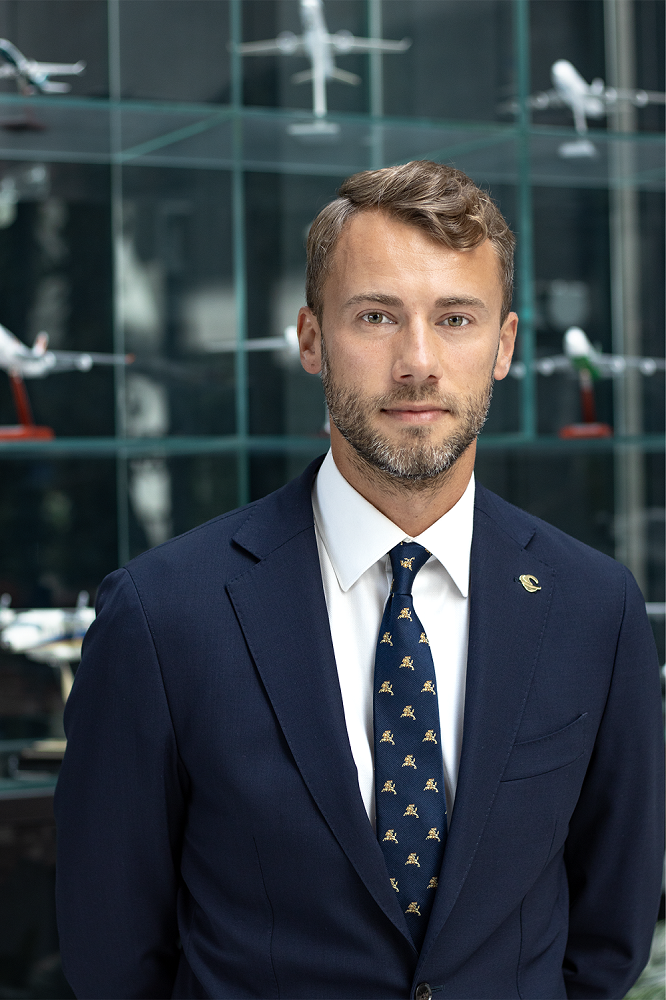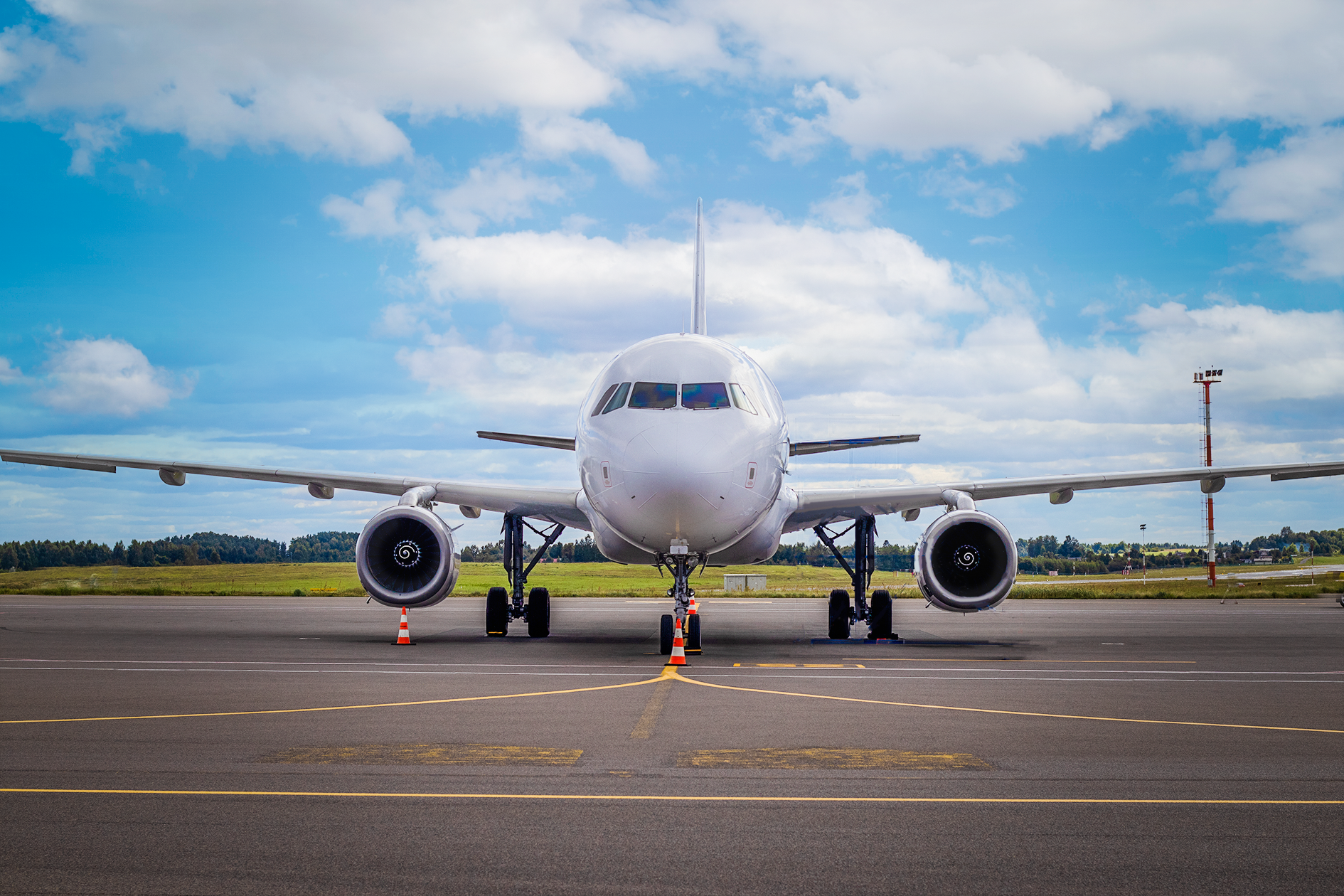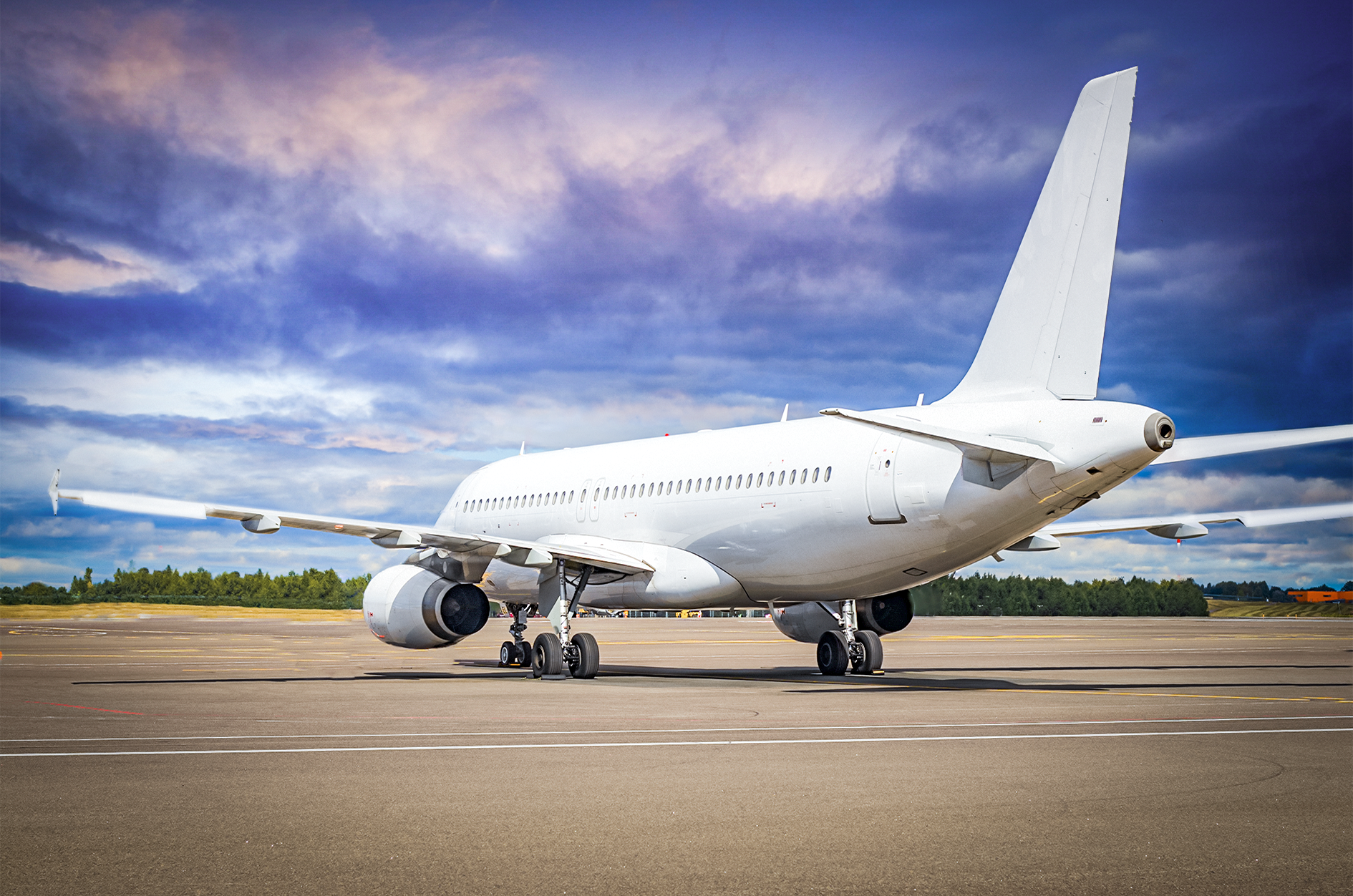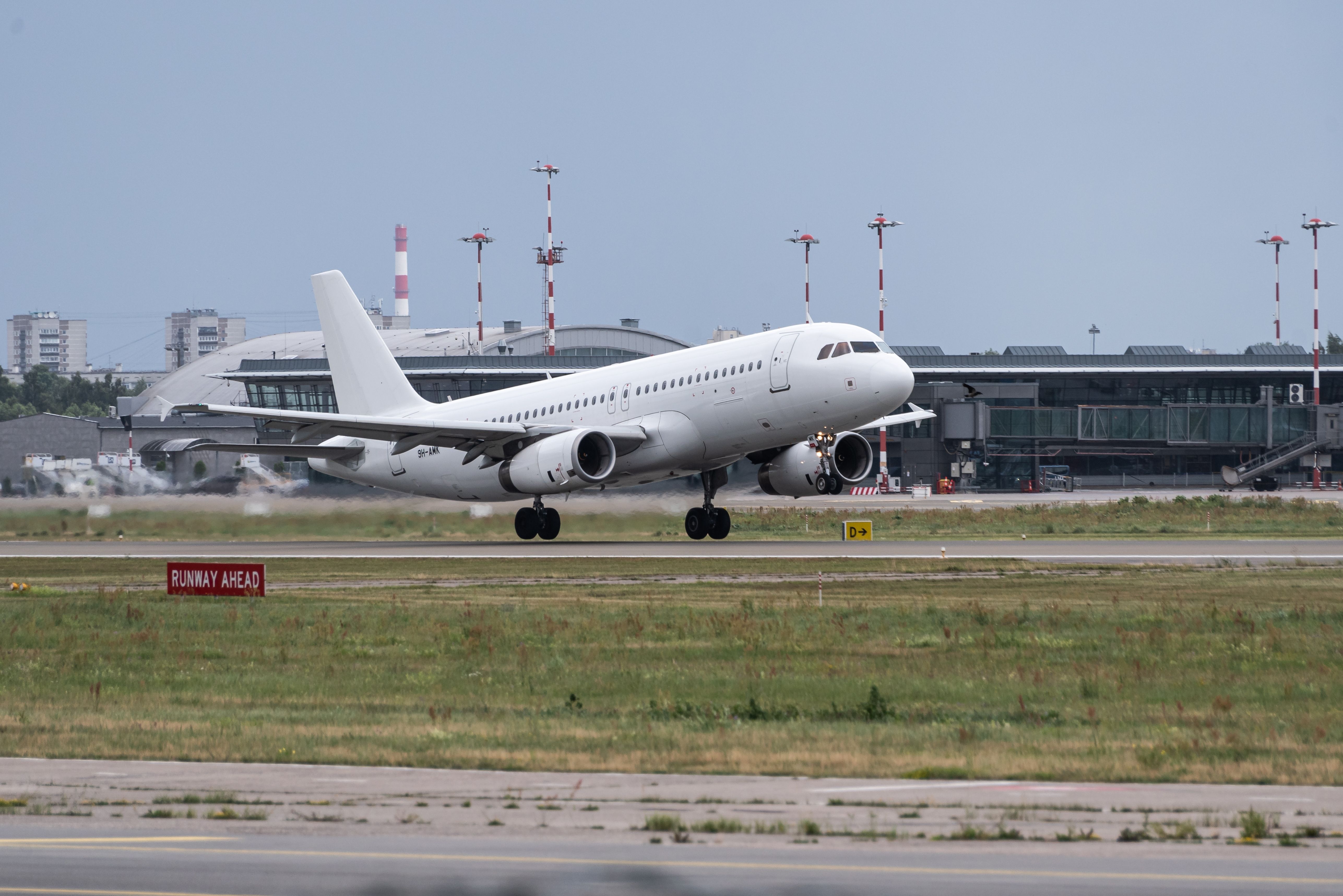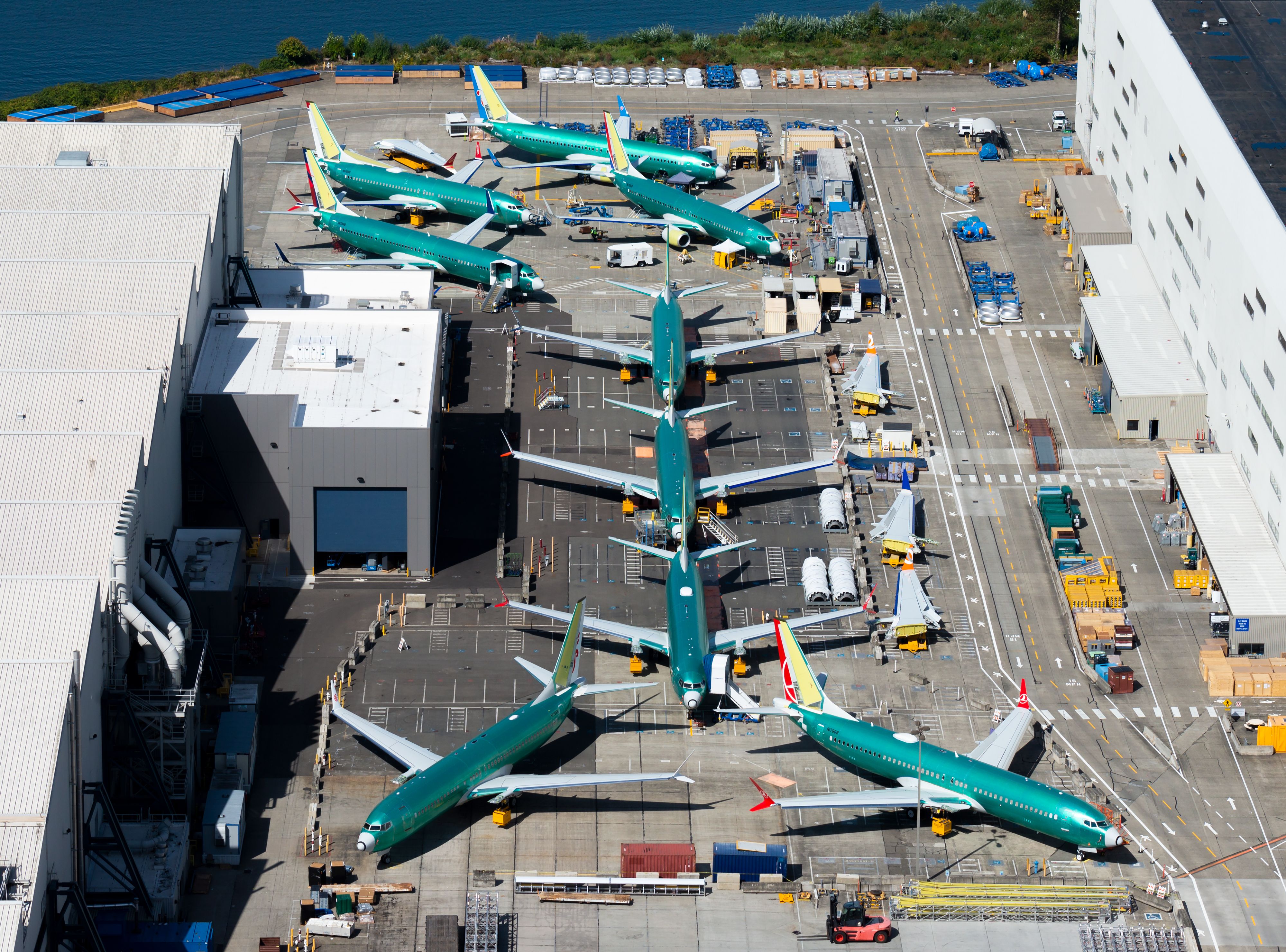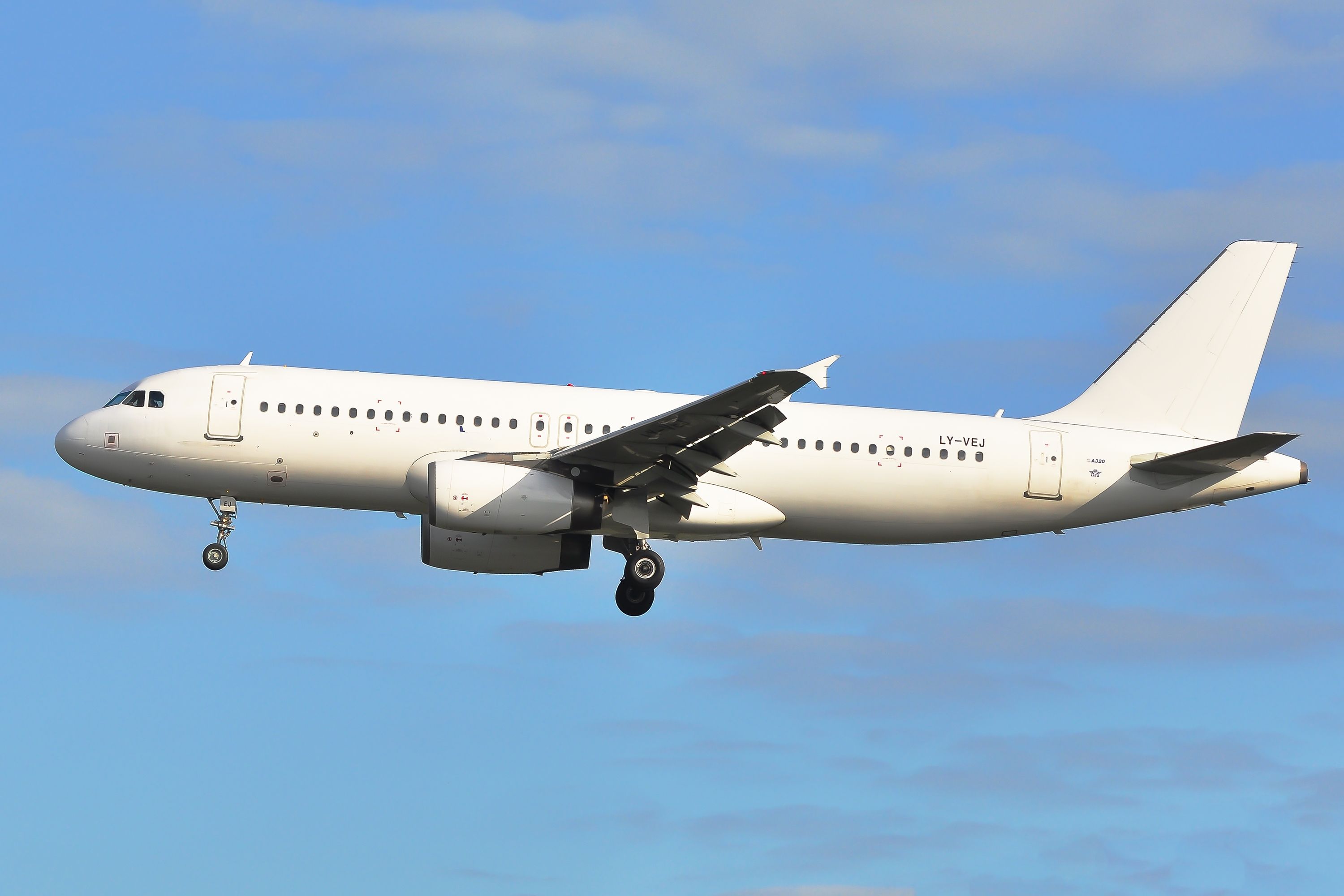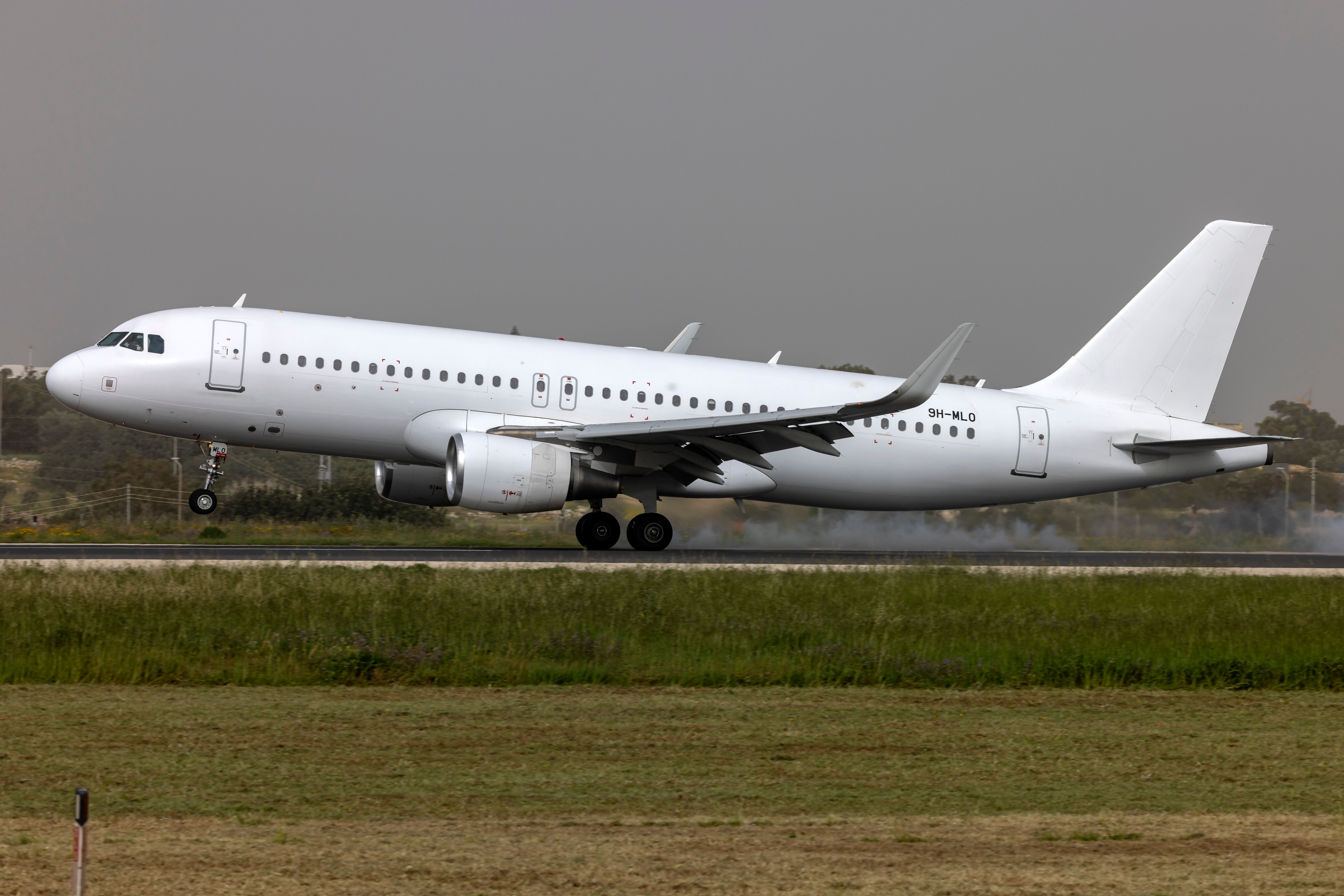Summary
- In an exclusive interview with Simple Flying, Darius Kajokas, the chief executive officer (CEO) of Avion Express, has revealed that the airline was looking into acquiring Airbus A320neo aircraft.
- Avion Express has also progressed into opening a subsidiary in Brazil, with the process potentially ending in 2024 and resulting in a Brazilian AOC.
- The airline also has plans to expand its fleet by around 50 aircraft, aiming to grow its fleet to 100 aircraft by 2027.
Speaking to Simple Flying in his Vilnius, Lithuania, office, Darius Kajokas, the chief executive officer (CEO) of Avion Express, the world’s leading aircraft, crew, maintenance, and insurance (ACMI) provider in terms of the number of flights, per ch-aviation data, unveiled that the carrier has been looking into acquiring Airbus A320neo aircraft, upgrading and renewing its fleet of A320ceo family aircraft.
The CEO also went into detail about the airline’s efforts to acquire an air operator’s certificate (AOC) in Brazil, the global aviation market, and the future of the airline and ACMI in general.
Expanding into Brazil
Throughout 2024, Avion Express has continued progressing in its attempt to acquire an AOC in Brazil. Explaining the decision why the carrier has eyed expansion into Brazil, in addition to its certificates in Lithuania and Malta, Kajokas first mentioned a very developed aviation market with three leading airlines in the country: Azul, GOL, and LATAM Airlines.
Photo: Avion Express
It was also the biggest economy in the region, as well as the most populous country, with over 200 million people living in Brazil and, according to Kajokas, over 100 million annual passengers.
Agência Brasil, Brazil’s national public news agency, detailed that in 2023, Brazil welcomed 112.6 million travelers on international and domestic flights.
Nevertheless, Kajokas also noted the country’s openness in welcoming foreign investment, especially in the aviation sector, adding that the Brazilian National Civil Aviation Agency (Agência Nacional de Aviação Civil, ANAC) has been incredibly proactive and professional as Avion Express has continued with its certification process.
“These were the main reasons why we chose Brazil, and we are very much looking forward to launching [operations] later in 2024.”
However, the executive explained that Avion Express is looking to operate in the wider Latin America region. The airline would not be a newcomer to that part of the world, as it had previously worked in Chile, partnering with the local low-cost carrier SKY Airline and other airlines in the Dominican Republic, Kajokas highlighted.
“We are discussing potential business opportunities in other Latin America countries, including Argentina, which is opening up as a market, Colombia, Chile, and the Dominican Republic.”
Initially, the carrier will shift aircraft from its European operations, and later on, Avion Express will add more aircraft to the Brazilian AOC. Per ch-aviation, the airline currently has 52 aircraft:
|
Airbus A320ceo |
Airbus A321ceo |
|
|
Avion Express (Lithuanian AOC) |
13 |
0 |
|
Avion Express Malta |
38 |
1 |
|
Avion Express Brazil |
0 (one to be delivered, currently registered in Lithuania as LY-NVN) |
0 |
|
Total: |
51 |
1 |
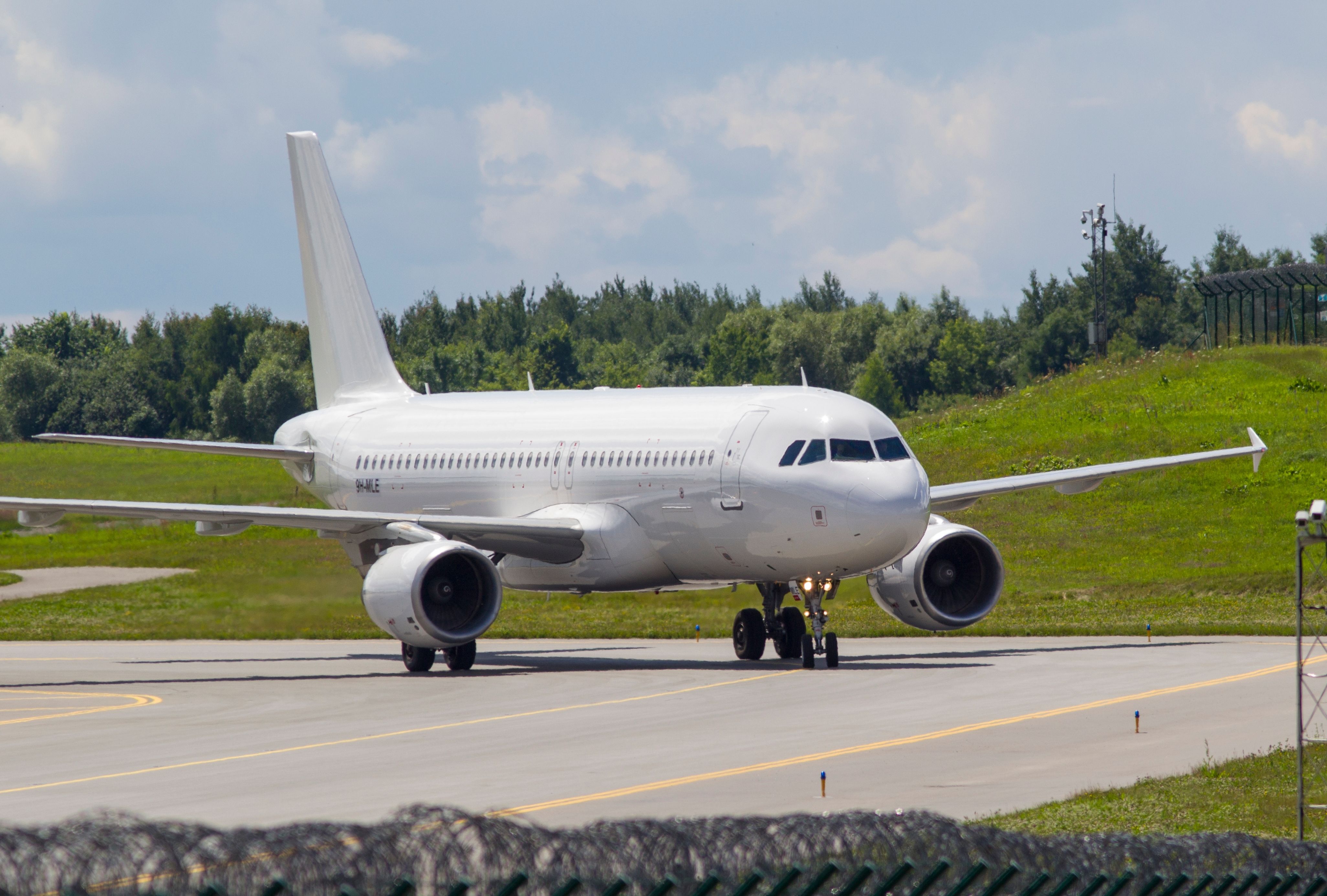
Related
Avion Express To Open An ACMI Subsidiary In Brazil
The new carrier is set to be launched by the end of this year.
Covering seasonality shifts
Kajokas summarized Avion Express’ business model as being an airline for other airlines, leasing out capacity to scheduled carriers that are impacted by seasonality. However, similarly to its customers, Avion Express’ flight activity is affected by the changing seasons in both hemispheres.
Thus, its AOC and operations in Brazil and, by extension, Latin America will help the carrier cope with seasonality and the related air travel demand changes, ensuring continuous flying for its aircraft and crew throughout the year.
Kajokas said that in Europe, the peak season typically lasts between April and October, while in Latin America, consumers travel the most from December to March. As such, the latter months would become counter-cyclical to its European operations, allowing Avion Express to utilize capacity on both high seasons in Europe and Brazil.
Photo: Avion Express
At the same time, Kajokas admitted that some regions still underutilize ACMI services. While in Europe, there is a single regulator, namely the European Union Aviation Safety Agency (EASA) overlooking the whole region, in other parts of the world, each country has its own authority.
“[…] each nation has their own regulations, they have their own regulatory bodies, and their own perception of how the market should look, making it a bit trickier, taking more time for those regions to develop.”
But Kajokas was positive that in the past years, regulators have opened up to the idea of welcoming ACMI services, which has resulted in Avion Express exploring new markets, including in South America, with the executive once again mentioning Brazil and Argentina as particular examples.
While Avion Express does not operate scheduled flights under its own name, it also has charter operations. However, according to the CEO, its charter income was a drop in the bucket, with less than 5% of its total revenue coming from charter flights. These operations are largely limited to Lithuania, with the carrier dedicating two and one aircraft to a tour operator during the winter and summer seasons, respectively.
“It is not our strategic direction to be flying charter flights. It boils down to the fact that the risk and reward are better in ACMI operations. Also, you can scale the same operations quicker, especially if we speak about geographically distant regions, whether it was Mexico, Chile, Brazil, Vietnam, or Thailand.”
During the pandemic, Avion Express, much like other airlines in Europe, began flying cargo, with Kajokas highlighting the airline carrying personal protection equipment (PPE), including to the Dominican Republic.
Yet, after the pandemic, Avion Express did not pursue additional cargo flying, with Kajokas mentioning that carrying cargo during a very turbulent period for the industry was a way for the airline to survive.
Photo: Avion Express
The executive acknowledged that air cargo has been struggling recently. Not only has belly capacity come back, but a fair few aircraft, including narrowbodies, were converted into freighters, resulting in the market being overflooded with capacity and pushing the operating margins down.
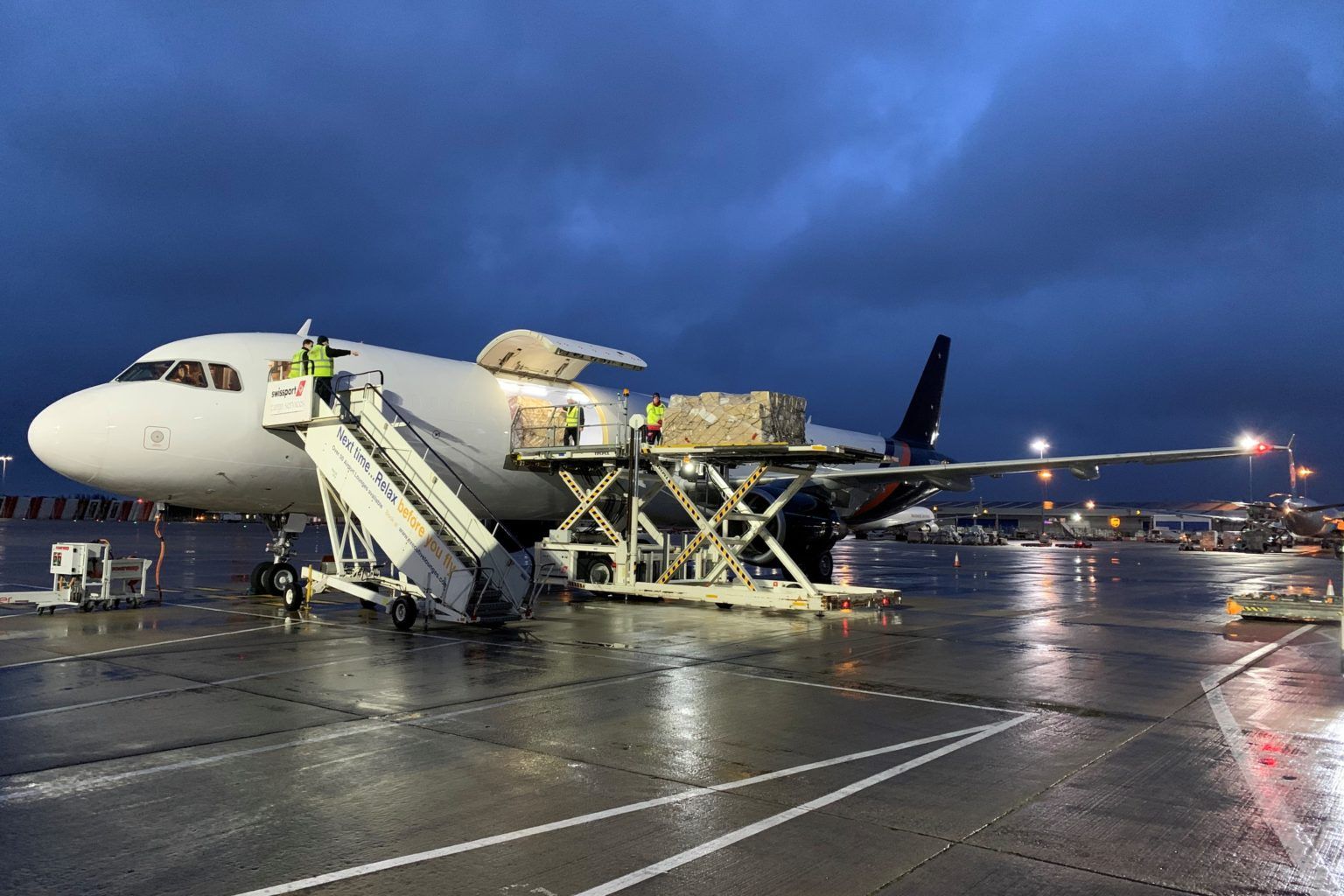
Related
AerCap Places Order For 15 Airbus A321P2F Aircraft
Deliveries will begin in 2023 as AerCap banks on the popular narrowbody converted freighter.
Restructuring its business
At the same time, it was seemingly not enough, as the airline had to restructure its business, entering a process similar to Chapter 11 bankruptcy in the United States in 2021. It completed its restructuring in March.
Kajokas explained that while governments elsewhere in the world supported airlines during the pandemic, that was not the case in Lithuania.
The country was unique, being one of the few countries in the world with no nationally registered scheduled airlines.
“We chose to counter the pandemic with the means and tools that were available to us. In a way, with all of our partners, creditors, and suppliers, we were sitting on the same ship. We took a balanced and personal approach with our crisis, trying to be as open as possible with everybody.”
Kajokas concluded that as it had ended the restructuring process, the airline managed to strike balanced deals with each creditor, which was the result of an open and fair relationship with them, with the executive being thankful for their support and how the process had turned out.
Photo: Bargais | Shutterstock
Speaking about the future of the ACMI market, Kajokas was overwhelmingly positive, noting that it has a lot of potential to grow further in the near future. Speaking roughly, the forecast for the upcoming ten years estimated that the wet leasing market should outpace the growth of the general passenger market, the CEO said.
“In the past decade, ACMI carriers have really professionalized their services, becoming more reliable, serving wider geographies, and standardized their product, which helped the market to develop.”
The CEO stated that in a post-pandemic world, seasonality swings have become more extreme since leisure traffic came back much stronger than business traffic, meaning that airlines have to deal with even larger contrasts in demand during the peak and off-season travel periods.
Yet this has boosted the demand for ACMI services since airlines do not want to commit to assets that they would underutilize for a large part of the year, and ACMI providers, such as Avion Express, provide carriers with an opportunity to add capacity without burdening their balance sheets.

Related
A ‘Peak’ At The Busiest & Quietest Days Of The Week To Fly
It’s nice to be able to avoid congestion if possible.
Helped by aircraft manufacturers’ struggles?
Has Avion Express been helped by the current external and internal supply chain and production issues that Airbus and Boeing have faced in the past months? Kajokas said that there were different angles from which you could look at this question.
The CEO joined the ACMI airline in 2017, adding that since then, the ACMI market has continuously grown, excluding the pandemic, when the whole industry had trended downward.
Nevertheless, each year was different, Kajokas remarked, noting the Boeing 737 MAX groundings in 2019 and 2020, the late deliveries of new aircraft after the pandemic, and the current problems with the Pratt & Whitney PW1100G engines, forcing operators to ground their aircraft.
“There will always be something that disturbs the market […] because it consists of so many providers, suppliers, OEMs [original equipment manufacturers – ed. note], and airlines. As I said, ACMI is growing, and the reason [the service] exists is the differences in seasonality between different continents.”
Avion Express’ chief executive continued that it will never make sense to have aircraft based on the demand during a peak travel season if you are profitable for five or six months of the year, as the majority of European airlines are.
“It makes perfect sense to partner with an ACMI provider for these five or six months and then have zero fixed costs for the surplus capacity during the low seasons while we, as an ACMI provider, can shift our capacity to other continents.”
Recently, Avion Express has operated flights for the aforementioned Chile-based SKY Airline, as well as three separate Vietnamese airlines simultaneously in February – in what was a first in aviation’s history, per Kajokas – and other European airlines.
While the CEO said that due to confidentiality he cannot tell where the airline will operate in 2025 just yet, he teased that more and more airlines have been seeing the benefits of ACMI services, including in North America and South America.
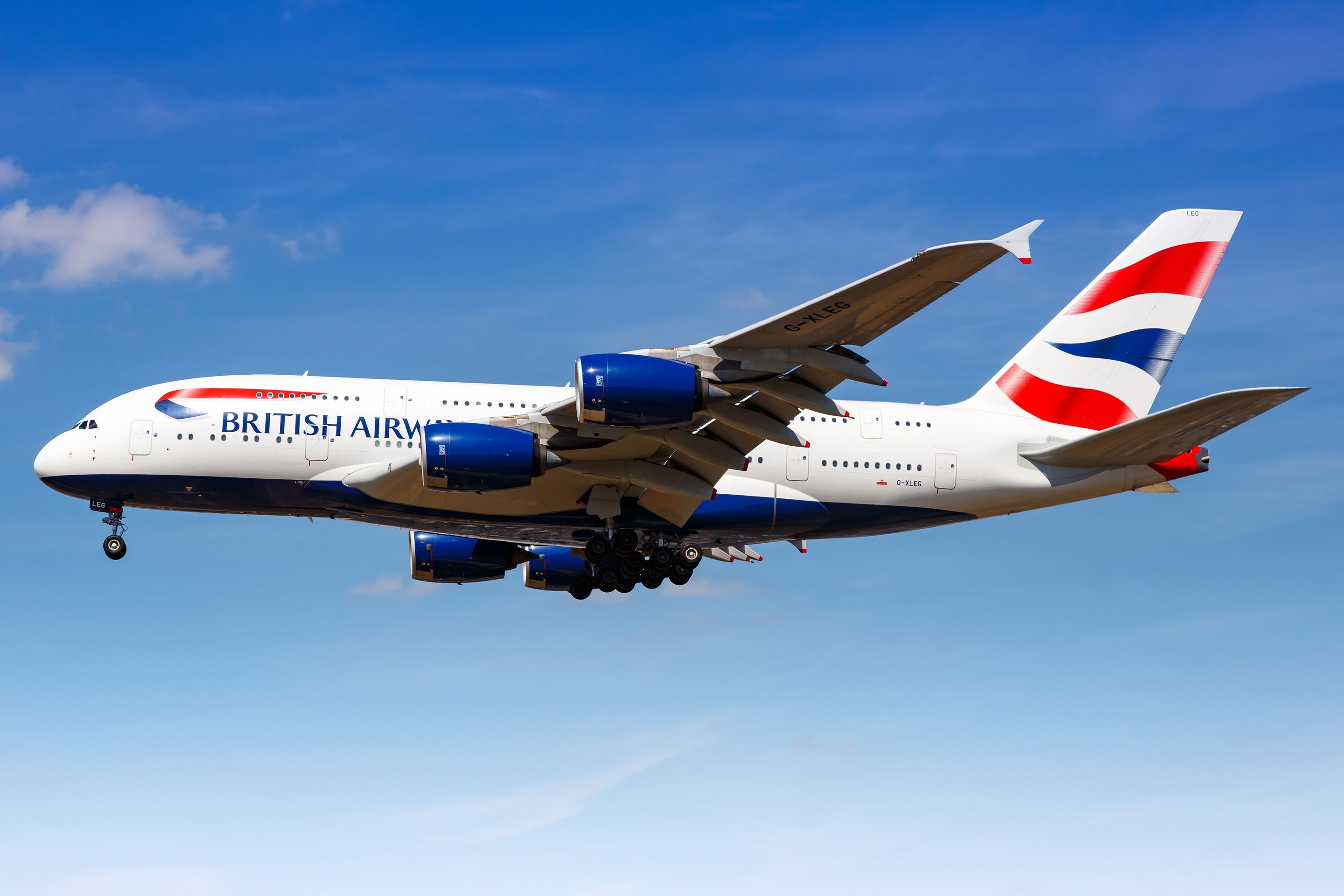
Related
How Will ACMI Trends Shape The Leasing Sector In 2024?
With crew shortages in the long-term forecast, wet leasing will undoubtedly be a popular solution.
Expanding into the US
However, operating domestic flights in the US was seemingly out of the question, at least for the time being. According to Kajokas, the US market primarily utilized capacity purchase agreements (CPA), typically signed between mainline and regional airlines.
“[A CPA] more often is a long-term agreement, being connected to feeder services, […] but if we speak about our ACMI services in Europe, usually, there are seasonal contracts, and we are mostly concentrating on seasonal contracts in our business.”
Photo: Vytautas Kielaitis | Shutterstock
Still, Avion Express aircraft could have been spotted in the US, with the airline working with such carriers as Mexico-based Viva Aerobus. That has been enabled by Avion Express having an AOC in Malta, which was a legacy Federal Aviation Administration (FAA) Category 1 status country, enabling its operators to operate flights from/to the US.
Briefly explaining the decision to open an AOC in Malta – done in 2019 – Kajokas also emphasized the diversification of risks associated with operating internationally and working with another authority.
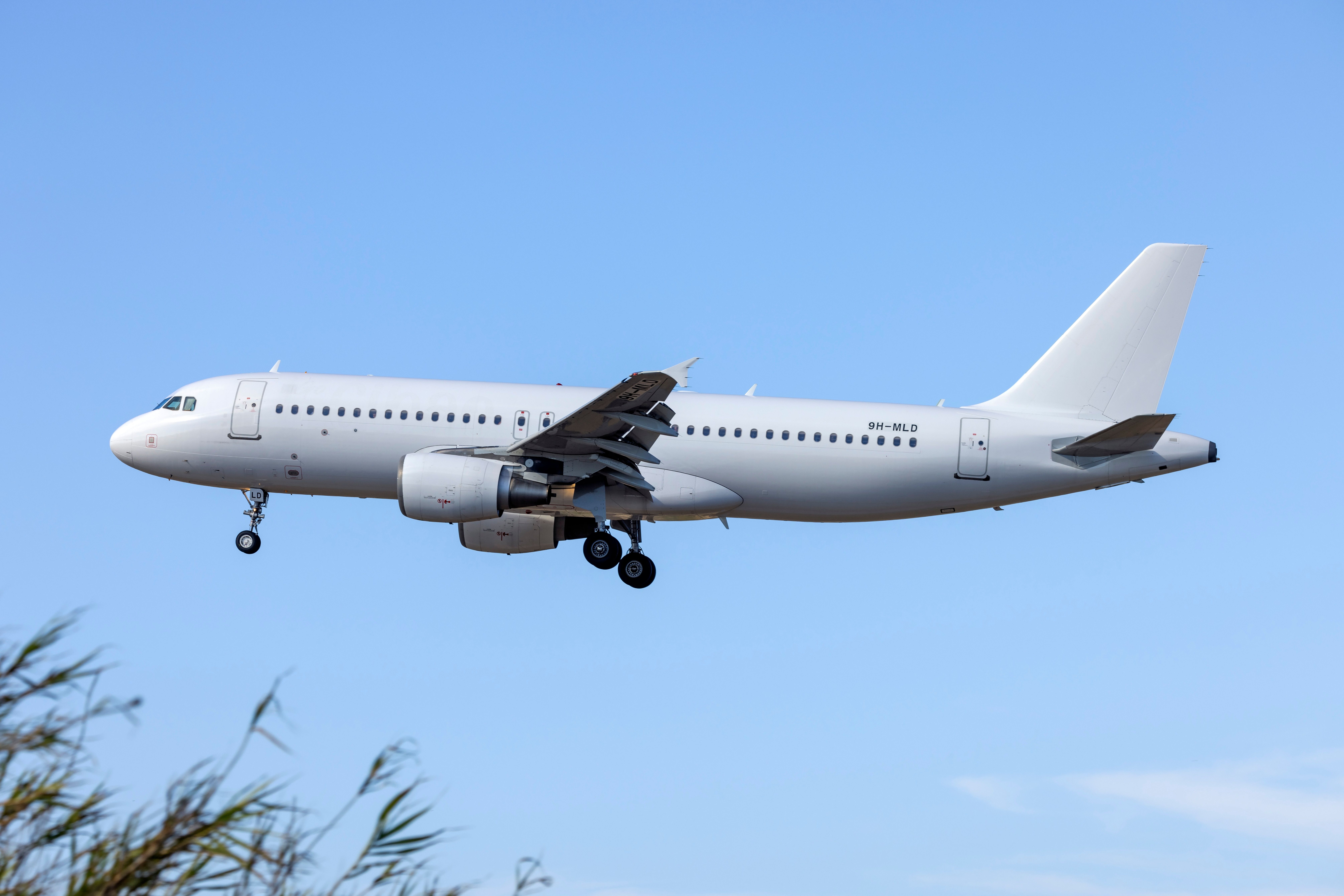
Related
Pratt & Whitney Engine Troubles Lead Viva Aerobus To Wet Lease Airbus A320
Mexican pilots are not happy about the wet leasing strategy.
This also helped to professionalize the business, Kajokas added, noting that when you speak with different regulators, you see minor differences, and even if both Lithuania and Malta were under the jurisdiction of EASA, “there are local peculiarities.”
In April, the FAA upgraded Lithuania’s status to Category 1, enabling the country’s operators to also fly into the US. The CEO stated that while the airline was already in the process of gaining the Department of Transportation’s (DOT) approval to fly through the US with its Maltese AOC, Lithuania’s upgrade will add further flexibility for the airline.
“Just to be clear, we never intended to fly domestically [in the US] because the US market is more connected to these CPAs, which are usually signed between two US-based carriers.”
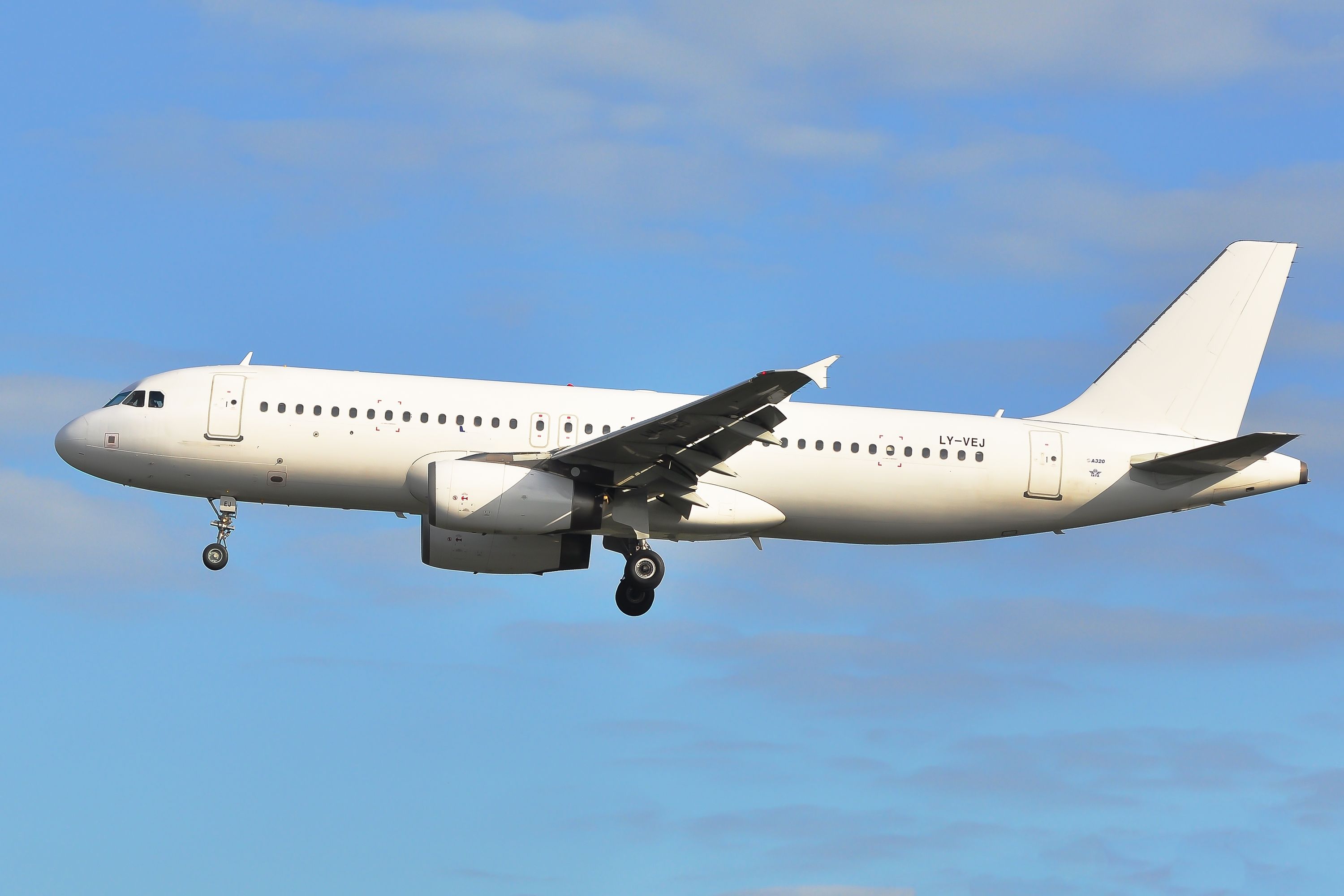
Related
With New FAA Category 1 Rating Lithuanian Operators Could Bridge Airline Capacity Gap
While Lithuania has no commercial airlines, the majority of operators based in the country wet lease their aircraft to other airlines globally.
Growing to 100 aircraft, including A320neos
Kajokas outlined that Avion Express has a goal to grow to 100 aircraft by 2027, which included plans to add the airline’s first A320neo family aircraft.
The CEO highlighted that the airline had been looking into acquiring A320neo family aircraft for the past few years, yet the main concerns for the executive and his team were the engines, whether it would be the CFM International LEAP-1A or PW1100G.
“We are currently negotiating a few LoIs [letters of intent – ed. note] for A320neos. These are not fresh aircraft, […] but still A320neos with new-generation engines. As part of this, we are speaking to engine OEMs about what kind of solutions they could provide.”
The executive detailed that these solutions could include power-by-the-hour agreements, whereupon the airline pays certain fees for the flown flight hours (FH) and OEMs undertake the maintenance and overhaul costs associated with the engines.
Still, the CEO remained realistic about the introduction of A320neos into the airline’s fleet, highlighting that while they are more fuel efficient and have fewer emissions, they are more expensive than previous-generation aircraft.
As such, Kajokas said that Avion Express would need to have a stable and high utilization of an A320neo, estimating that for it to be profitable, the carrier would have to utilize the new-generation aircraft for at least 4,000 FH per year.
Photo: InsectWorld | Shutterstock
The process should start in 2025, according to the executive. He also ruled out widebody aircraft, noting that the risk and reward balance favored single-aisle jets, considering that operating twin-aisle aircraft in the ACMI market was much more complex, requiring a totally different product.
And he remained realistic about the goal of 100 aircraft by 2027, adding that growth does not come naturally and you have to work for it. According to Kajokas, Avion Express needs to continuously add customers to add so much capacity to its balance sheet.
Simultaneously, the CEO said that the airline has been affected by the same constraints as other carriers, including the ever-growing asset pricing for aircraft and the potential lack of pilots.
“We need to grow sustainably, step-by-step, and think ahead without overburdening ourselves because a too steep growth trajectory has already claimed many airlines historically.”
Kajokas concluded that he was optimistic about the future of Avion Express and the global ACMI market, saying that more and more airlines would look into ACMI services for strategic capacity management to manage seasonality.
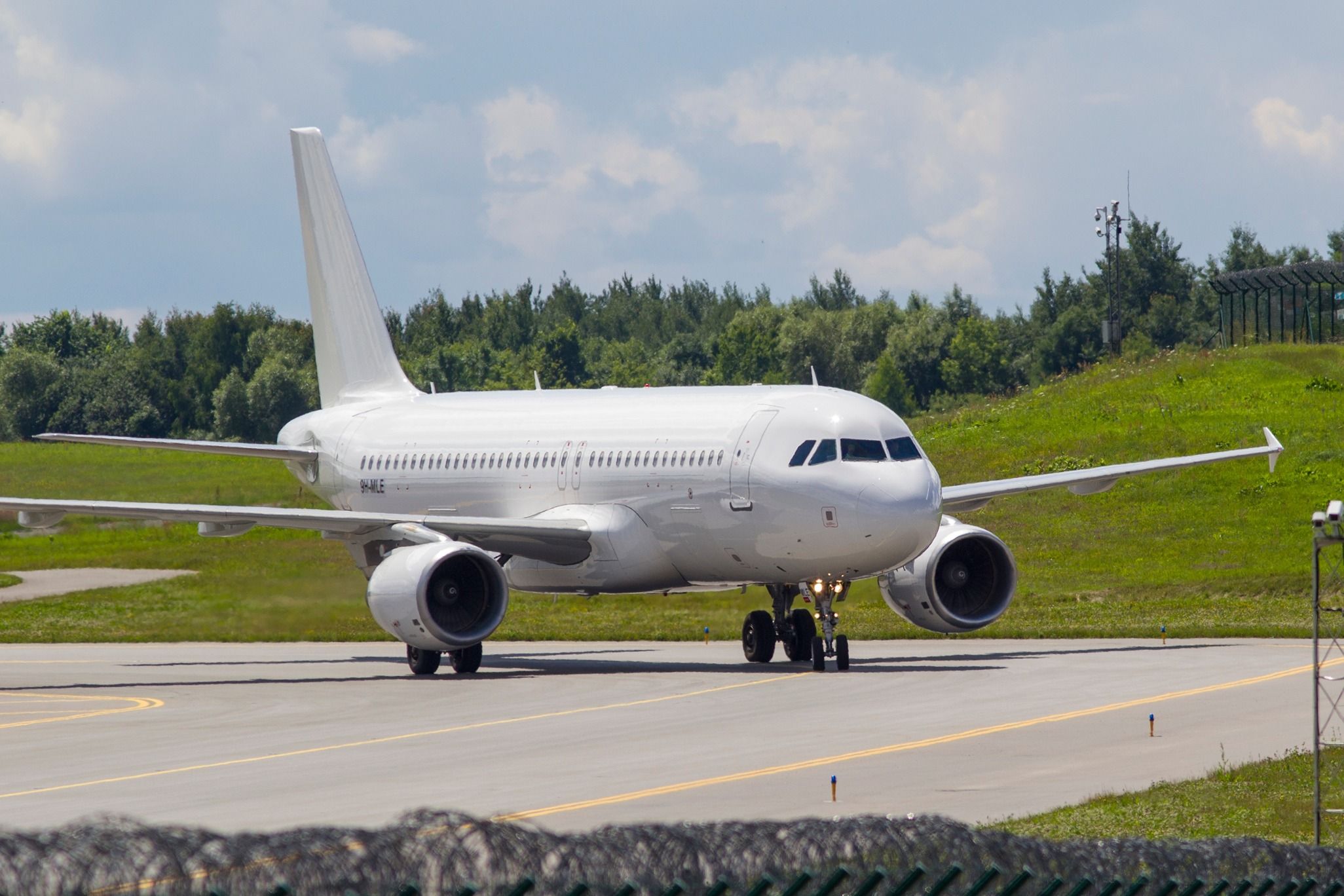
Related
Avion Express Airbus A320 That Skidded Off The Runway Is Back Flying Again
The aircraft spent more than four months being repaired at facilities at Vilnius Airport (VNO).


